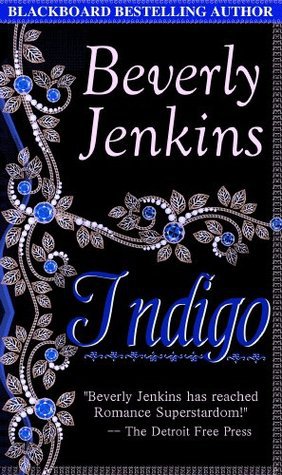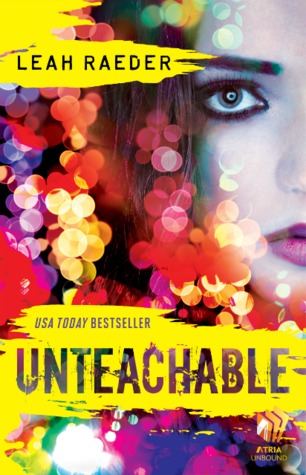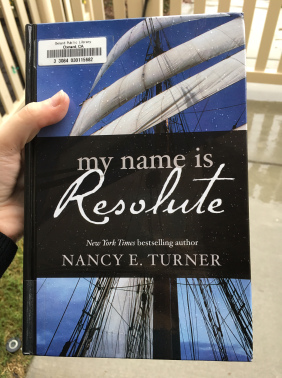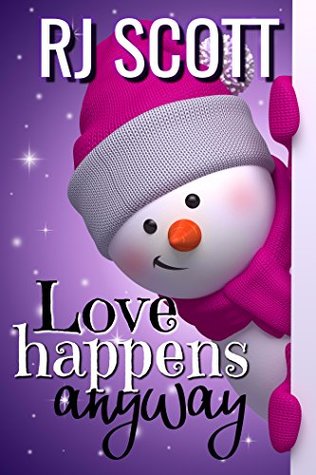
I’m not sure where to begin with this review. Prior to this book I had never read Beverly Jenkins, and to be honest up until about a year ago I don’t think I’d really heard of her. I consider myself a “romance reader” but my romance world is very minute; when you start with Nora Roberts and read her library you have plenty of time to be a romance reader without straying too far from the mothership. I heard about Jenkins in the documentary Love Between the Covers (it’s also available on Netflix and I highly recommend it for anyone who reads or is curious about the romance genre). Needless to say, I was intrigued and curious about her, but between school and life I didn’t read much and the books I did read were trusted authors. This year my roommate and I have started a book club, granted right now its just the two of us (why are there no romance readers in PDX?!). Our goal was to branch out both in authors and subgenres that we read and at the top of the list was Jenkins. And based on reviews and online polls, we chose Indigo (currently $4.61 on Amazon Kindle). When we found out she was the RITA Lifetime Achievement Winner we were ecstatic to read her.
Part of me thinks I owe Jenkins an apology for taking so long to read her, another part of me believes (fancifully) that we read books when we are meant to read them.
But, on with the review!
*** PLEASE NOTE SPOILERS BELOW***
*
*
S
P
O
I
L
E
R
S
*
*
I enjoyed it. I will admit I had some apprehension because of the subject matter. The book takes place in Michigan before the Civil War and during the Underground Railroad. Hester Wyatt is a freed slave whose free family bought her freedom as a child; the name of the book comes from the dye that has permanently marked her hands and feet from her days as a slave when she (and the others) would extract dye. The book itself sprung from a letter Jenkins found of a free man who loved a slave and sold himself into slaver for her freedom; what kind of love is that? How much must your heart bleed for someone to give up your life, your freedom, your everything for them?
Anyway, Hester helps a man who is part of a caravan that was attacked while helping slaves escape to freedom. The man ends up being the Black Daniel, a legendary mastermind in the effort to help free as many slaves as possible. I’m assuming he is like the Robin Hood of the Underground Railroad.
My apprehension came in the subject matter; there is very little HEA in slavery, as Jenkins notes at the end of her book but this is a romance, and we must trust that HEA is a must.
Hester and Wyatt begin a flirtation which develops into more. As they are on the point of consummating their romance, he is pulled away because the hunters are closing in. He returns and we find out that he is more than a man on the Railroad but a wealthy man of power from New Orleans. He marries Hester and, eventually, they live happily ever after.
In reading this book it felt like two books in one — first, the dangerous and thrilling leader of the Underground Railroad being hunted and in the hands of a single, black woman. It was exciting to see if he would be caught, to keep the secret with them while Hester kept the secret for a time from her friends. There was a sense of danger around every page. The second book was the billionaire hero trying to win his wife’s affection.
Both characters are beautifully described; I felt like I knew Hester and cheered her every move. She was strong, independent, and able to face men of both races. She has herself put in prison so a slave can escape, she lives on her family land and maintains her station as a stop on the railroad, she can use weapons and goes to church. She is a crucial part of the community. She’s kind of that amazing character you want to gather close to you and promise nothing will happen. The Black Daniel, whose real name is Galen Vachon, is the one that I loved but wanted more from. As the Black Daniel he was exciting, he was dangerous, he was sarcastic and flirtatious. He is a man willing to walk into the fire but who you knew would walk back out. Galen is a wealthy property owner and has more money than he knows what to do with and flaunts it in order to secure Hester’s love. He notes she has a single, ratty, old nightdress and sends her a chest full of silken options. He sends her bushels of orange and food for the winter. The urgency and danger in the story seemed lessened by his money and power, because if anything happened he could buy his way to freedom. In fact, when Hester has herself imprisoned he is the one who comes in with a bag of gold as her bail. A bag of gold; not money but a bag of gold.
I appreciate the gestures and I understand why he does what he does, but in effect he takes away her consent. Each time she asks him to stop, she says it is too much, and he keeps bringing her more. I am not a huge fan of the billionaire trope, so I think that that is one of the reasons this subplot fell flat for me.
So, what did I like?
I loved their romance; the way that she maintained her home and her rules while slowly falling for him. He is a man of the world with lovers in every port, she is a spinster who long ago gave up the hope for romantic love. I enjoyed watching their banter and the moments she learned how to laugh and play — like making mudpies and playing by the river. I usually do not care for the virgin trope, but I loved her discovery of herself and of him. I loved the not-so-hidden looks and tentative touched. For her character, her virginity made sense.
What did I love like?
I loved Jenkins’ writing; I have never been to Michigan nor have I been to an Underground Railroad town in Michigan but I saw it completely. I saw the community, I saw the homes in the road, I saw the town that she created and described. I fell into the world she wrote about completely. I want to read more of this town, its people. I want to see its history and how it worked with its neighbors. Her words and sentences created an image so clear in my mind that I can picture everything down to the panelling in Hester’s home. I love how Jenkins’ incorporates actual history into her novel and creates a fictional history within the bounds of actual figures and events.
What didn’t I love?
I think the one thing that bothered me throughout the book was the subtle showing of how Hester’s consent was either taken away or ignored. Hester repeatedly tells Galen that she will not marry him, he repeatedly tells her that she will. Finally at Sunday mass he stands up at the altar and calls her down for their wedding; she can’t say no or she would face scandal and/or humiliation. Similarly, she repeatedly tells him to stop giving her gifts and that what she has will do, but he brings jewels and gowns and more than she can fathom. She starts the book engaged, not in a romantic engagement but an intellectual one (as she calls it), but even that is taken away from her when he fiance falls in love with a woman on his ship back to Michigan.
I also didn’t like how everything tied neatly in a bow. The hunters’ storyline, which is the main conflict throughout the book, is solved by Galen throwing money at their feet and buying the man (aside from the lead hunter) off. Why wait until the end? Why not buy them off when they were initially coming after him?
Hester’s ex-fiance’s new fiance ends up selling her out — which is when Galen steps in and saves her — but I can’t fault her for her behavior. She is a single woman without the benefit of land or property, and without the benefit of a billionaire husband. Hester even makes the comparison herself that she could have fallen into the same path, although I think we know from the story that she would not.
All in all, I enjoyed the book. I might not have loved the ending but I enjoyed the romance and learning about this community.
I am 100% excited to have read this particular novel by Jenkins, and now I’m looking for another recommendation. Have you read her? Do you have any recommendations for a follow-up?
Advertisements Share this:




